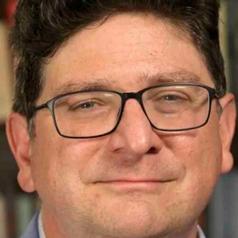
Jay Rubenstein
Professor of History and Religion, USC Dornsife College of Letters, Arts and Sciences
Professor Rubenstein studies the cultural and intellectual history of the High Middle Ages, with emphases on the Crusades, monasticism, biblical exegesis and prophetic thought. In addition to teaching in the history department at USC, he is the director of the Center for the Premodern World.
Less ![]()

Jay Sexton
I was born and raised in Salina, Kansas, a town near the geographic center of the contiguous United States. I read History and English at the University of Kansas. I first came to Oxford on an undergraduate study abroad year and was immediately drawn to the tutorial system. I was fortunate to return to Britain as a post-graduate Marshall Scholar at Worcester College, Oxford. After finishing a D.Phil. in modern history, I went to Gonville and Caius College, Cambridge on a Junior Research Fellowship, before assuming my present post as University Lecturer in American History and Tutorial Fellow in History at Corpus Christi College.
My principal research focuses on nineteenth century American history. From the perspective of the twenty-first century, the rise of the United States appears natural and inevitable. Yet there was nothing pre-ordained about the consolidation of the American Union, nor the establishment of the American empire. I am interested in why this group of former British colonies bound together and how their fragile union survived fundamental ideological and political disputes, such as those unleashed by the entrenchment of slavery in the Southern states. Most of my research has focused on nineteenth century US foreign relations and Americans' paradoxical relationship with empire. As Americans struggled to free themselves from their colonial past, they constructed their own empire, engaged in their own conquests, and exercised effective control over other peoples. My work connects the United States' foreign relations with its project of nation-building at home.
In addition to the above, I have secondary research interests in the American Civil War, international finance and economics in the nineteenth century, Anglo-American relations, and US cultural expansion.
I supervise post-graduate researchers working on America in the world in the nineteenth and early twentieth century, the American Civil War, and US economic development.
Less ![]()
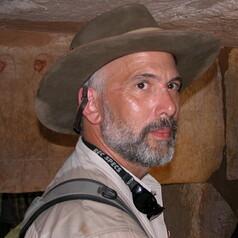
Jay Silverstein
Senior Lecturer in Archaeology , Nottingham Trent University
Jay specializes in the archaeology of warfare and has extensive experience in the study of conflict, imperialism, and the Rise and Fall of complex societies. His Master's Research focused on the Sea Peoples and the collapse of the Bronze Age and his Doctoral research centered on the archaeology of the Aztec-Tarascan Imperial frontier. Jay has 17 years of experience searching for MIAs from past wars including WWII, Korea, and Vietnam. Jay developed a nationally recognized Enterprise GIS to track the investigation and recovery of 80,000 missing persons. Jay is a director of the study of the Graeco-Roman city of Thmouis (Tell Timai) in the Nile Delta. The well-preserved city offers an opportunity to analyze the cultural transformations associated with Greek and Roman imperialism and the evolution of religions from the indigenous Egyptian pantheon through Christianity. His theoretical interests focus on the rise and fall of complex societies, imperialism, archaeological manifestations of social power, ancient hydraulic ecological adaptations, warfare, GIS, and urban development. He has led expeditions around the globe studying ancient civilizations and past wars.
Less ![]()

Jay L. Zagorsky
Clinical associate professor, Boston University
I teach at Boston University's Questrom School of Business. From 1988 to the present my teaching has spanned a wide range of levels from senior executives taking intensive classes to high school students encountering economic theories for the first time. I have taught giant lectures of over 450 students, classes of fifty, and small seminars with fewer than ten people.
From 1995 to 2018 I held the position of Research Scientist at The Ohio State University, where I collected data as part of the National Longitudinal Surveys on income, wealth, and life experiences of thousands of Americans. My personal finance research has been widely quoted in the media and has been highlighted in the Wall Street Journal, USA Today, Fox News, Good Morning America, Scientific American and numerous other news outlets.
Besides publishing numerous scholarly articles I wrote the book "Business Information: Finding and Using Data in the Digital Age" for McGraw-Hill/Irwin and "Business Macroeconomics: A Guide for Managers, Traders and Practical People." More information on the macroeconomics book can be found at http://businessmacroeconomics.com/.
My personal blogs are found here https://blogs.bu.edu/zagorsky/ and https://u.osu.edu/zagorsky.1/
Less ![]()
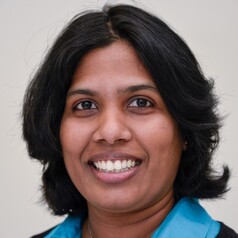
Jayani Chandrapala
Associate Professor, RMIT University
A food scientist with an h index of 39. Published >140 publications. Hold a PhD in Food Chemistry/Food Science and Technology.
Less ![]()
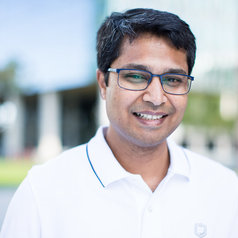
Jayanta Sarkar
Associate professor of economics, Queensland University of Technology
Dr. Jayanta Sarkar is an Associate Professor at Queensland University of Technology, Brisbane. He completed his Ph.D. degree in Economics from Southern Methodist University (Dallas, Texas) in 2006. He worked as an Assistant Professor at Louisiana Tech University, before moving to Australia in 2010. Dr. Sarkar’s research focuses on human behaviour and decision making, primarily in the areas of health and education. He has frequently published in high-impact peer-reviewed journals such as Health Economics and is also a regular commentator in Australian TV and news media.
Dr. Sarkar has successfully led cross-disciplinary research partnering with stakeholders associated with health programs funded by Queensland Health, as well as Queensland Schools. His research has attracted numerous overseas PhD students conducting research in the area of behaviour and health.
His research interest areas include Economic Development, Behavioral Economics, Health and Human Capital.
Less ![]()

Jayasankar Pillai
Research Fellow, Geography and Environmental Sciences, Northumbria University, Newcastle
At Northumbria University, I work with Prof. Adrian Jenkins on a project where the main objective is to improve the representation of ice-sheet-ocean interactions in the coupled models that are used to project future ice sheet evolution.
During my PhD I studied 1) the coupled dynamics of the Indo-Pacific Ocean using regional ocean modelling; 2) the Indian Ocean deep Meridional Overturning Circulation (MOC); and 3) the Atmosphere-Ocean contribution to the equatorial Pacific sea surface temperatures (drivers of ENSO events). The study was motivated by the growing influence of the rapidly warming Indian Ocean on the Pacific Ocean and the overwhelming influence of the Pacific Ocean on the global climate.
The project I am currently involved in is known as ‘PROjecTing sEa-level rise: from iCe sheets to local implicaTions (PROTECT)’. The research involves the Investigation of the potential future sea level contribution of the Antarctic Ice Sheet. The main aim of the work is to improve the representation of ice-sheet-ocean interactions in the coupled models that are used to project future ice sheet evolution. This involves development, implementation and evaluation of algorithms that facilitate the passing of key variables between the ocean and ice sheet component models.
My other research interests are the future of Deep Meridional Overturning Circulations (MOCs) and El Niño Southern Oscillations (ENSO) in a warming climate. I am also interested in regional climate impact assessment studies.
Less ![]()

Jayashree Kamble
Professor of English, City University of New York
I'm a romance fiction reader and scholar who teaches at LaGuardia Community College in the City University of New York. My most recent monograph is Creating Identity: The Popular Romance Heroine's Journey to Selfhood and Self-Presentation (2023, Indiana University Press). My article on representations of Black and BIPOC academics in romance novels from the 1980s and more recent ones is available at the open-access peer reviewed journal Esferas Literarias via https://academicworks.cuny.edu/lg_pubs/190/
Less ![]()
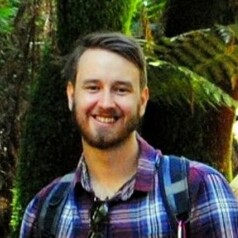
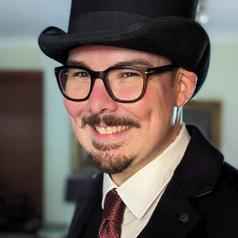
Jayden Greenwell-Barnden
Cognitive Psychology Researcher, The University of Western Australia
I have a PhD in psychology from the University of Western Australia, with expertise in cognitive and applied (human factors) psychology. I also hold two undergraduate degrees with honours from the same institution. The first was Bachelor of Arts majoring in law and society, and history. The second was psychology. I also hold accreditation as Associate Fellow of the Higher Education Association (UK), demonstrating my continued development as an educator.
Less ![]()
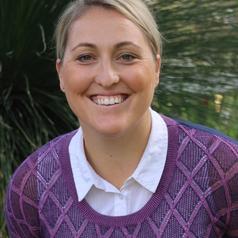
Jaydene Barnes
Associate Lecturer , Western Sydney University
Jaydene Barnes is an Associate Lecturer at Western Sydney University currently undertaking her PhD through Western Sydney University investigating play based pedagogies in Australian primary schools. Jaydene received her Master of Education (Literacies and Literate Worlds) from Charles Sturt University in 2011. Her passion is studying pedagogies in both primary school and early childhood contexts and exploring new opportunities to foster student engagement, well-being and literacy learning.
Less ![]()

Jayna Holroyd-Leduc
Professor and Head, Department of Medicine, University of Calgary, University of Calgary
Less ![]()
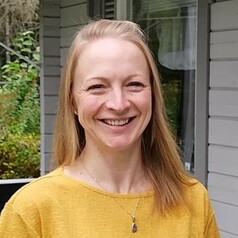
Jayne Glass
Researcher in Geography, Uppsala University
My research interests revolve around theories and practice related to sustainable rural development and land use. I take an inclusive and collaborative approach to my work, regularly facilitating or working in interdisciplinary teams to deliver research that directly impacts policy and practice.
I am currently engaged in research and knowledge exchange in five inter-related themes: multi-stakeholder, land-based collaboration for sustainable development and climate change mitigation (including narratives relating to natural capital); rural poverty and social exclusion; power and social inequality in relation to land and asset tenure/management models; place-based community activism and rural advocacy; and research impact.
Other research has spanned many contexts, including socio-economic and environmental outcomes of rural land uses, game management (for sport and conservation), community and stakeholder engagement, community-led local development, community involvement in renewable energy, and community resilience.
I am motivated by transdisciplinary research that integrates and synthesises many different disciplinary perspectives, between both academic and non-academic actors. I believe that the process of research provides an opportunity for those involved to consider new insights and knowledge, rethink their assumptions, and solve problems in a communicative and collaborative manner. At a time when sustainability challenges are characterised by complexity, divergent perspectives of problems and solutions, and fragmented institutional contexts, the social practices of research should be transformative for all involved, including the researchers. In practice, this means that a lot of my work to date has facilitated deliberative dialogue between policy, practice and academic stakeholders, developing practical outcomes and immediate policy impact.
Less ![]()

Jayne Jackson
Lecturer in Education, Auckland University of Technology
Jayne began her career in education as a primary teacher. She has taught across the primary years in NZ and in the USA and been involved in school leadership. As a classroom teacher, Jayne maintained a dual focus on social and academic skills.
Jayne has worked in Initial Teacher Education since 2007. Her Doctorate focused on working with parents to support struggling readers in ways which were compatible with home culture. This work continues to inform research in the field of literacy.
Jayne is involved in the nationwide evaluation of the Healthy Active Learning Initiative which aims to increase the physical activity of tamariki and rangitahi. The evaluation is multifaceted and seeks to understand the impact on physical activity and student's emotional, social and academic skills.
Less ![]()

Jayne Ressler
Associate Professor of Law, Brooklyn Law School
Jayne Ressler is an associate professor of law at Brooklyn Law College, with expertise in civil procedure, legal writing, employment discrimination, New York civil practice and professional responsibility.
Less ![]()
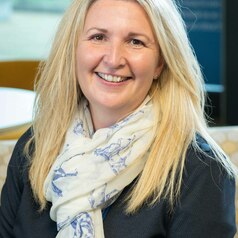
Jayne Walker
Senior lecturer| Professional Lead. School of Paramedical, Peri-Operative and Advanced Practice. Faculty of Health Sciences., University of Hull
Registered to the Nursing and Midwifery Council (Adult Nurse; SCPHN; Community Practitioner Nurse Prescriber).
Jayne began her career as a registered Adult Nurse in 1996, before progressing into Midwifery in 1999. Jayne's clinical practice then transitioned to become a Specialist Community Public Health Nurse (Health Visitor) in 2005. Jayne successfully qualified as a Practice Teacher (P.G.C.E.) in 2012. Jayne has an MSc in Health Studies (Leadership and Education).
Jayne has been a Lecturer in the Faculty of Health Sciences at the University of Hull since 2017 and is a Senior Fellow of the Higher Education Academy.
Jayne is a Fellow of the Institute of Health Visiting and iHV Perinatal Mental Health and Infant Mental Health Champion.
She is actively involved as a steering panel member for the local Schwartz Rounds, which is a forum for healthcare staff to address personal, emotional and social challenges associated with working in Healthcare, and caring for patients.
Jayne works directly with student groups from all levels of academic study alongside external partners to ensure the training and study delivered is of a high standard. Jayne has extensive experience and knowledge of designing, delivering, assessing and evaluating Programmes of study. Jayne is involved in the development and implementation of organisational policies, procedures and guidance, which reflects national standards of practice.
Jayne has worked collaboratively with the Local Authority and Clinical Commissioning Groups to evaluate service provision for vulnerable community groups. This has led to further collaborations and service evaluations within the Acute Trust and within Primary Care settings.
Less ![]()

Jayson Semmens
Professor, Sustainable Marine Research Collaboration, University of Tasmania
Jayson Semmens is a Professor at the Fisheries and Aquaculture Centre (FAC), Institute for Marine and Antarctic Studies (IMAS), University of Tasmania (UTAS). His research has an overall theme of conservation/sustainability, where he focuses his research activities on biotelemetry; biologging and ecophysiology and more specifically, elasmobranch biology, spatial ecology, ecophysiology, and energetics; and cephalopod biology, ecology, and ecophysiology. He also has a strong interest and capability in examining the impact of anthropogenic change, often using an ecophysiological approach, particularly research examining effects of seismic surveys, as focused on its this application, and hypoxia and developing ways of mitigating impacts and rebuilding populations. Additionally, he conduct fisheries research on scallops and cephalopods.
Less ![]()
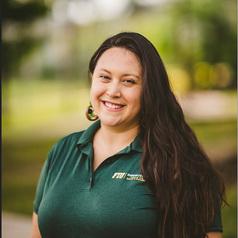
Jazmin Locke-Rodriguez
Post Doctoral Associate in the Institute of Environment, Florida International University
Jazmin entered as a Ph.D. student in Agroecology program in 2017 with Dr. Krishnaswamy Jayachandran as her major adviser. Her current dissertation work investigates the application of Floating Treatment Wetlands (FTW) as a type of green infrastructure to manage nutrient runoff in South Florida through phytoremediation. By experimenting with cut-flower crops, she is identifying flowers that will grow well in these conditions, produce abundant blooms, and promote regular harvesting. This regular biomass harvesting increases the nutrient removal capacities of the FTW while also providing a product that can be sold in the market to help financially sustain the remediation efforts.
Less ![]()
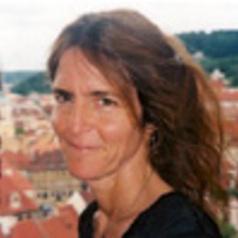
Jean Bennett
Professor Emeritus of Ophthalmology; Cell and Developmental Biology, University of Pennsylvania
Jean Bennett was recruited to the Scheie Eye Institute at University of Pennsylvania’s School of Medicine in 1992 where she has spent the past 3 decades developing gene-based strategies for treating inherited retinal degenerations. There she has run a true bench-to-bedside translational research program and, in the process, has trained hundreds of physician-scientists, many of whom are now leaders in translational research around the globe. She was the scientific leader of a team that translated reversal of blindness in animal models to demonstration of efficacy and safety of gene therapy in children and adults. She was the scientific director of clinical studies at the Children’s Hospital of Philadelphia that led to first FDA-approved gene therapy for a genetic disease (blindness due to RPE65 deficiency, studies that were sponsored by a company that she co-founded (but in which she waived financial benefit), Spark Therapeutics). She helped develop the primary outcome measure for that trial that led in 2017 to the first US FDA-approved gene therapy product. It also led to approval of the reagent, “Luxturna”, by the European Medicines Agency. Jean continues to develop gene-based therapies for retinal degenerative diseases and to tackle some of the limitations of current gene therapy technologies. She recently co-founded Opus Genetics to help those patients and families that suffer from conditions that are so rare that they have been neglected by big pharma. Jean graduated from Yale College with a BS in Honors Biology, received her PhD (Zoology, Cell and Developmental Biology) from University of California, Berkeley and her MD from Harvard Medical School. She then received post-graduate training at Yale University and Johns Hopkins in Human Genetics and Developmental Genetics. An internationally recognized expert in gene therapy, Dr. Bennett has authored more than 120 peer-reviewed papers.
Less ![]()
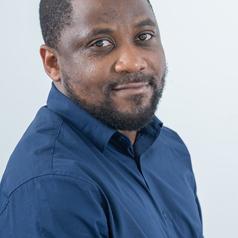
Jean Bessala
Lecturer in Finance, Salford Business School, University of Salford
Dr. Jean Bessala is a Lecturer in Finance at the University of Salford, Manchester, UK. He earned his undergraduate degree in Financial Engineering from the Central University of Tunis in 2012 and his PhD from Salford University in 2022. Since 2018, he has taught various undergraduate and master courses in accounting, finance, banking, and business. His research focuses on corporate takeovers, equity and debt issues, banking regulations, deep learning models with finance applications, and sustainable finance.
Less ![]()

Jean Boase-Beier
Emeritus Professor, School of Literature, Drama and Creative Writing, University of East Anglia
Less ![]()
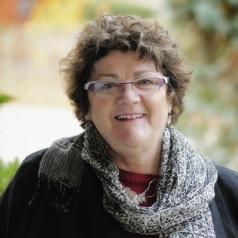
Jean Clinton
Clinical Professor, Psychiatry, McMaster University
I have a fellowship in Psychiatry and have practised as a child psychiatrist and knowledge translator for many years. My special interest lies in brain development, and the crucial role relationships and connectedness play therein. I have also worked on research with many colleagues over these many years. I have authored a book, canadian best seller called Love Builds brains.
Less ![]()

Jean Hardy
Assistant Professor of Media & Information, Michigan State University
Jean Hardy is an Assistant Professor in the Department of Media & Information at Michigan State University. His research focuses on the role of digital technology in rural economic and community development.
Less ![]()
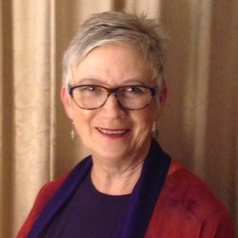
Jean Ker Walsh
Postdoctoral Associate, Victoria University
Dr Jean Ker Walsh is working on a book based on her thesis and her career experience in political journalism, as a political media adviser and strategic communications specialist.
Less ![]()
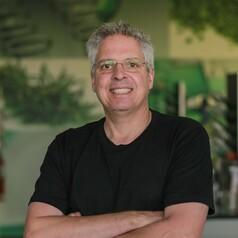
Jean Legault
Professeur-chercheur en biochimie et pharmacologie, Université du Québec à Chicoutimi (UQAC)
Less ![]()
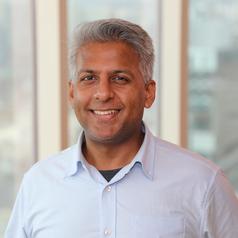
Jean Mathews
Assistant Professor, Departments of Medicine and Oncology, Queen's University, Ontario
Dr. Jean Mathews is a palliative care physician from India. He moved to Canada in 2018 and completed a clinical research fellowship in palliative medicine at Princess Margaret Cancer Centre, Toronto. He joined the Division of Palliative Medicine at Queen's University in 2021. Jean’s areas of interest are quality improvement and global oncology palliative care. He is working on research projects in Canada and in India, to improve access to early palliative care.
Less ![]()
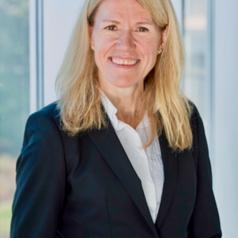
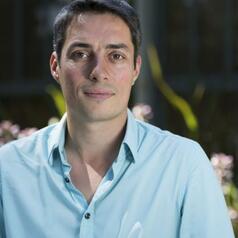
Jean-Baptiste Fini
Professeur du MNHN, Muséum national d’histoire naturelle (MNHN)
Jean-Baptiste Fini, PhD, is a full professor at the French National Muséum of Natural history (MNHN) in the department “Adaptation of living organisms ” in a common unit with the CNRS (French National Research Center) named “Physiological and Molecular Adaptation”.
In this joint unit CNRS/MNHN (Paris, France) Pr. Fini leads the research team RODEO (responses to Environmental challenges) particularly on thyroid hormone signalling pathway disruptors and studies short- and long-term consequences of early exposure to different classes of chemical substances, either as single molecules or as mixtures. During the previous ten years, he has developed an assay to identify thyroid disruptors and their effects within Pr. Demeneix's team, who was awarded with the medal of innovation by the CNRS in 2014. Dr. Fini currently participates in several expert groups at the OECD (AOP, Thyroid) and is also part of the working group on endocrine disruptors at the French National Food Safety and Environment Agency (ANSES) and part of a working group on EDCs at the EFSA (European Food Safety Agency).
Less ![]()
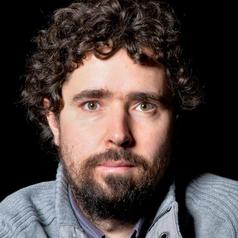
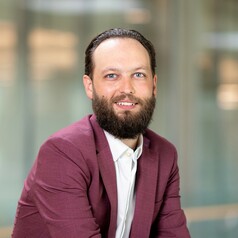
Jean-Christophe Bélisle-Pipon
Assistant Professor in Health Ethics, Simon Fraser University
Jean-Christophe Bélisle-Pipon, PhD is Assistant Professor in Health Ethics at the Faculty of Health Sciences of Simon Fraser University.
Bioethicist by training, his research lies at the interface of health policies, citizen and patient engagement in research and health governance, as well as business practices. His professional experience, working for both the pharmaceutical industry and the government, provided him with an insider’s understanding of the ethical, policy and social dimensions of health technology development and assessment. He has worked on the ethics of pharmaceutical marketing, conflict of interest, public health ethics, patient engagement in research and the science-society interface. His normative gaze has since turned to the ethical, legal and social implications (ELSI) of artificial intelligence (AI) and big data in health.
Jean-Christophe uses both empirical and conceptual bioethics methodologies. As part of his research, he makes recommendations on the appropriate management and resolution of ethical issues for health regulators and industry decision-makers.
He is a former Visiting Researcher at the Petrie-Flom Center for Health Law Policy, Biotechnology, and Bioethics at the Harvard Law School as well as former Fellow at the Health Law Institute at Dalhousie University.
His research is funded by the Canadian Institutes of Health Research, Québec Health Research Fund, Canada’s Social Sciences and Humanities Research Council, and the Québec Support for People and Patient-Oriented Research and Trials Unit.
Less ![]()
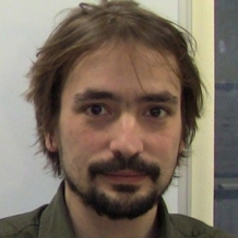
Jean-Francois Mercure
Associate Professor in Climate Change Policy, University of Exeter
Dr. Jean-Francois Mercure is Senior Economist at the World bank and Associate Professor in Climate Policy at the Global Systems Institute, University of Exeter, UK. His research focuses on developing theory, models and methods for public policy appraisal in low-carbon innovation, and for assessing the effectiveness and socio-economic impacts of diverse types of low-carbon, energy and climate policies. He also develops methods to understand and assess climate-related financial risks. He co-leads two major programs at the World Bank on analytical tool development and coalition for capacity on climate action (C3A) for finance ministries. Prior to this he was recently project director for a £5M program of research and consortium of researchers commissioned by the UK government, project called 'Economics of Energy Innovation and System Transition', working with stakeholders in India, China, Brazil, the UK and EU (www.eeist.co.uk). He has worked at several universities including the University of Cambridge, where he continues as fellow of the Cambridge Centre for Energy, Environment and Natural Resource Governance (C-EERNG). He regularly engages with policy-makers internationally.
Less ![]()
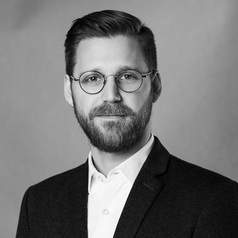
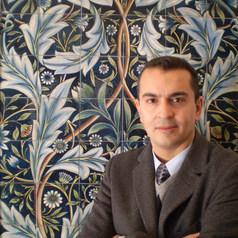
Jean-Pierre Cassarino
Visiting professor, College of Europe
I hold a PhD in social and political sciences, awarded in 1998, by the European University Institute. Previously, I studied political science at the Institut d’Etudes Politiques in Aix-en-Provence where I specialized on the Middle East and North Africa (MENA) region while learning Arabic.
I have lived and worked in Jordan, Morocco and Tunisia. Currently, I am a Senior Research Fellow at the European Neighbourhood Policy Chair of the College of Europe (Natolin Campus) where I direct the Natolin Academy of Migration while teaching and developing research on how migration affect bilateral and multilateral patterns of cooperation. I am also a research associate at the Tunis-based Research Institute on the Contemporary Maghreb (IRMC). As of February 2020, I will direct the Chair on Migration Studies at the Institute for Advanced Studies IMéRA, Aix-Marseille University.
My publications and major interests focus on the expansion of international regulatory systems and bilateral/regional patterns of cooperation, and on the diffusion and internalization of norms and practices pertaining to the “governance” of international migration, especially with reference to MENA and African countries.
Prior to this, I was part-time professor at the Robert Schuman Centre for Advanced Studies (European University Institute, Florence) where I supervised and managed interdisciplinary research projects on migration policies and developed field surveys mobilizing EU and non-EU partner institutions (in North and sub-Saharan Africa, the Mediterranean and the Caucasus).
I have also worked for the International Training Centre of the International Labour Organisation (ITC-ILO). I have served as a consultant to the European Parliament (LIBE Committee) on readmission policies and human rights observance in the EU. I have also cooperated with the United Nations Economic Commission for Africa (ECA) and the OECD Sahel and West Africa Club (SWAC).
Finally, I am a member of the scientific committee of the Laboratory of Critical Studies on Forced Migration based at the University of Milan (Italy).
For more: https://www.jeanpierrecassarino.com/
Less ![]()

Jean-Pierre Darnis
Professeur des Universités, directeur du master en relations franco-italiennes, Université Côte d'Azur, Chercheur associé à la Fondation pour la Recherche Stratégique (FRS, Paris), professeur et membre du CISS de l'université LUISS de Rome, Université Côte d’Azur
Jean-Pierre Darnis est Professeur des Universités, directeur du master en relations franco-italiennes à l’Université Côte d’Azur (Nice). Il est membre du Centre de la Méditerranée Moderne et Contemporaine (CMMC) de Nice où il coordonne le programme de recherche « La France, l’Italie et leurs Méditerranées ».
Il est également chercheur associé à la Fondation pour la Recherche Stratégique (FRS Paris).
Professeur d’histoire contemporaine et membre du Center for International and Strategic Studies de l’Université LUISS de Rome, il est membre du conseil scientifique du Parvis des Gentils (Conseil Pontifical pour la Culture). Il écrit pour le quotidien italien "Il Foglio".
Il a été précédemment directeur du programme « Sécurité, Défense, Espace » de l’Istituto Affari Internazionali (IAI) de Rome où il a également créé et le programme « technologie et relations internationales ».
Il a enseigné à l'Académie Militaire de Saint-Cyr Coëtquidan, à l'Université Jean Monnet (Saint Etienne), à SciencesPo et au Collège de Défense de l'OTAN.
Il est titulaire d'un doctorat en Sciences Humaines obtenu à l'Université de Paris X Nanterre en 1996 et d'une habilitation à diriger les recherches (hdr) soutenue en 2012 à l'Université Stendhal-Grenoble 3. Au cours de son parcours d'étude et de recherche il a obtenu une bourse erasmus auprès de l'Université Catholique de Milan, une bourse d'excellence Lavoisier du Ministère des Affaires Etrangères, une bourse d'étude auprès de l'Istituto per gli Studi di Politica Internazionale (ISPI) de Milan ainsi une bourse du CNR (Consiglio Nazionale per la Ricerca) auprès de l'Université Luiss de Rome.
Il est né à Figeac (Lot, Occitanie) où il a effectué l'ensemble de sa scolarité (Ecole Maurice Lacalmontie, Ecole Louis Barrié, Collège Marcel Masbou, Lycée Jean-François Champollion).
Less ![]()
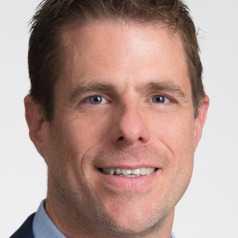
Jean-Sébastien Roy
Professeur titulaire à l'École des sciences de la réadaptation, Université Laval
Jean-Sébastien Roy est chercheur au Centre interdisciplinaire de recherche en réadaptation et intégration sociale (Cirris) et professeur titulaire à l'École de sciences de la réadaptation de l'Université Laval (Québec, Canada). Ses domaines de recherche portent sur la définition des facteurs centraux (neuraux) et périphériques (niveau articulaire) associés à l'apparition et à la chronicisation des troubles musculosquelettiques, ainsi que sur l'évaluation des effets des approches de réadaptation pour prévenir ou traiter ces troubles. Il a publié plus de 170 articles dans des revues spécialisées et 10 chapitres de livres, principalement sur les mécanismes neuromusculaires des troubles musculosquelettiques, et a présenté plus de 70 communications lors de conférences nationales et internationales. Avant de se consacrer entièrement à la recherche, il a travaillé pendant 10 ans en tant que physiothérapeute au Centre hospitalier de l'Université Laval, spécialisé dans le traitement des troubles musculosquelettiques.
Less ![]()
- Market Data





















